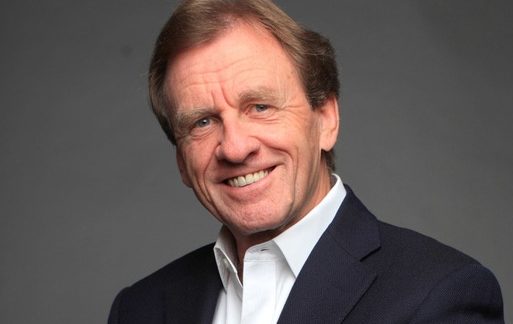
Allan Rock
President Emeritus and Professor at uOttawa’s Faculty of Law
Allan Michael Rock, PC, OC, QC, is a Canadian lawyer, former politician, diplomat and university president. He served in the cabinet of Jean Chrétien, most notably as Justice Minister and Health Minister.
Allan Rock was Canada’s Ambassador to the United Nations (2003- 2006) during a period that involved responding to several complex regional conflicts, managing intensive efforts to modernize the United Nations through institutional reforms, and participating in the negotiations that led to the 2005 Leaders’ World Summit. In particular, Allan Rock led the successful Canadian effort at the Summit to secure the unanimous adoption by world leaders of The Responsibility to Protect populations from genocide, ethnic cleansing, war crimes and crimes against humanity. Following the conclusion of his term as Ambassador to the United Nations, Allan Rock served as Special Advisor on Sri Lanka to the Special Representative of the Secretary-General of the United Nations on Children and Armed Conflict (July 2006-March 2007).
In 2008, Mr. Rock became the 29th President and Vice-Chancellor of the University of Ottawa, where he completed two terms as uOttawa President in 2016. Following his mandate, he became a Visiting Scholar at Harvard Law School, associated with the Program on International Law and Armed Conflict.
Allan Rock is now President Emeritus and a Full Professor at uOttawa’s Faculty of Law, where he teaches International Humanitarian Law and Public and Constitutional Law. He is the director of the Parliamentary Centre, commissioner of the Transatlantic Commission on Election Integrity, and a senior advisor to the World Refugee Council.
Allan Michael Rock, PC, OC, QC est un avocat, homme politique et diplomate canadien.
Allan Rock a été nommé ambassadeur du Canada auprès des Nations Unies (2003-2006), à une époque où il fallait réagir à plusieurs conflits régionaux complexes, gérer des efforts intensifs pour moderniser les Nations Unies au moyen de réformes institutionnelles et participer aux négociations qui ont abouti au Sommet mondial des leaders de 2005. En particulier, Allan Rock a dirigé les efforts fructueux déployés par le Canada lors du Sommet pour obtenir l’adoption par les dirigeants du monde à l’unanimité d’une résolution sur la Responsabilité de protéger les populations contre le génocide, les crimes de guerre, le nettoyage ethnique et autres atrocités de masse. Il a par la suite servi comme conseiller spécial pour le Sri Lanka auprès du représentant spécial du Secrétaire général des Nations Unies afin d’enquêter sur l’utilisation illégale d’enfants soldats au Sri Lanka pendant sa guerre civile (juillet 2006-mars 2007).
En 2008, Allan Rock devenait le 29e recteur et vice-chancelier de l’Université d’Ottawa, ou il a servi deux mandats en qualité de recteur de l’Université d’Ottawa jusqu’en 2016. Allan Rock a été par la suite chercheur invité à la Faculté de droit de l’Université Harvard pour œuvrer dans le cadre de son Programme sur le droit international et les conflits armés.
Allan Rock est recteur émérite de l’Université d’Ottawa et professeur de droit à la Faculté de droit, où il enseigne le Droit international humanitaire, et les Conflits armés en droit international. Il est directeur du Centre parlementaire, commissaire de la Commission transatlantique sur l’intégrité électorale et conseiller principal du Conseil mondial pour les réfugiés.
My Sessions
Opening Plenary Day 1: Setting the tone: What should Canada’s foreign policy agenda be?
Room 118Robert Greenhill
Shirley Kimmayong
Shirley Pryce
Allan Rock
Meredith LILLY
As part of its contribution to the Summit on Canada’s Global Leadership, the Canadian Council for International Co-operation (CCIC) convened Canadian foreign policy thought leaders to form an advisory committee to create a Vision Statement for an ambitious and impactful Canadian foreign policy agenda. This short paper encompasses all facets of Canada’s international engagement and serves as a reflection piece […]
Linking Democracy, Diplomacy and Security – An Opportunity for Canada?
Room 118Maureen Boyd
Andrew Leslie
Meredith LILLY
Allan Rock
Register for this session Since the early 1990s, the Organization for Economic Co-operation and Development’s Development Assistance Committee (OECD-DAC) has advocated for providers of official development assistance to take into consideration the impact of non-aid policies on development outcomes, since these policies, in areas such as diplomacy or security, can (and almost always do) […]